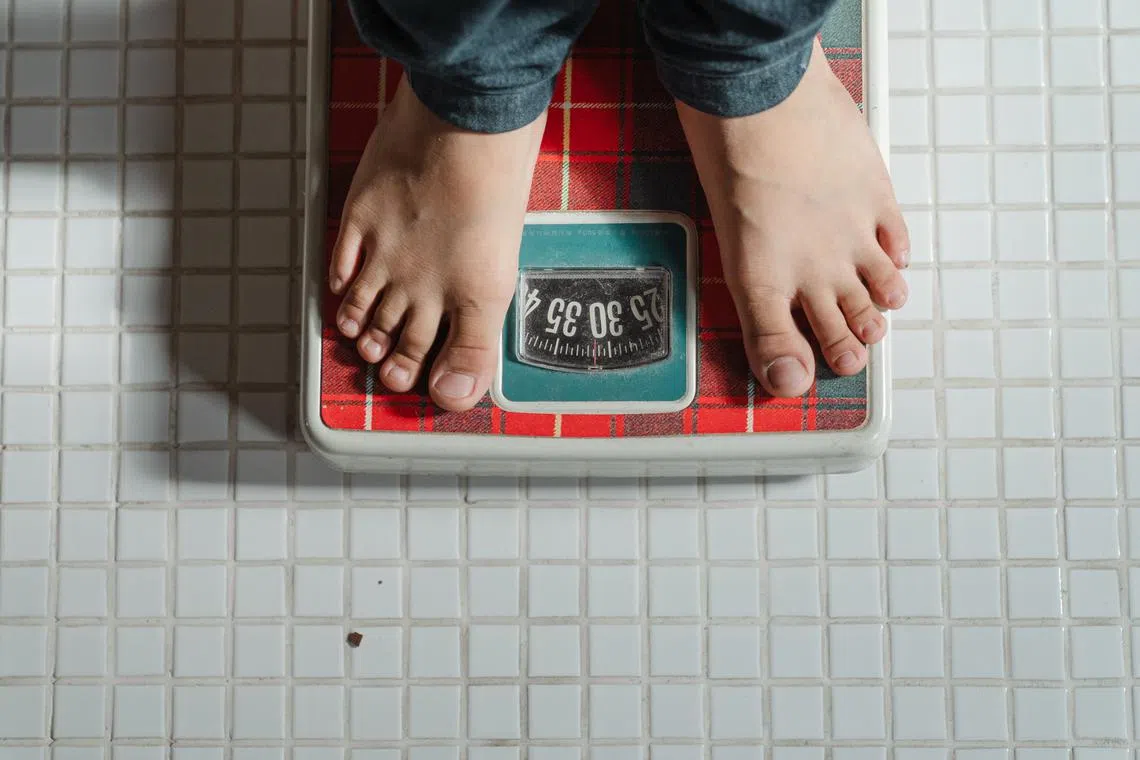US panel recommends children with obesity start counselling from age 6
Sign up now: Get ST's newsletters delivered to your inbox

Research has shown that at least 26 hours of counselling is effective for achieving a healthy weight.
PHOTO: PEXELS
WASHINGTON - Children with obesity should receive intensive counselling to promote healthy diet and exercise habits starting at age six, according to a draft recommendation issued by a panel of US experts on Dec 13.
The government-backed US Preventive Services Task Force (USPSTF) had recommended in 2017 that screening for obesity start at the age of six.
Research since then has shown the effectiveness of intensive behavioural interventions – defined as at least 26 hours of counselling with one or more health professionals – for achieving a healthy weight and improving the quality of life for children and adolescents, the panel said. The recommendation did not specify a timeframe.
The new USPSTF advice does not address the use of medications such as Novo Nordisk’s Wegovy, which is approved for children age 12 and above, or surgery.
The task force said it reviewed evidence on weight loss medications but found that more research is needed to fully understand the long-term health outcomes for medications.
The behavioural interventions would comprise “a package” that includes physical activity, support for behaviour change, and education about healthy eating, said task force member Katrina Donahue of the University of North Carolina School of Medicine.
Because local resources vary, the interventions will “look different in different cities”, Dr Donahue acknowledged.
But the panel’s review of data from 58 randomised controlled trials involving more than 10,000 children found that these interventions work, “as long as the child receives a total of at least 26 hours of contact with professionals”, Dr Donahue said.
The USPSTF assigned a “grade B” to the evidence favouring the intensive interventions, meaning there is high certainty the interventions would have at least a moderate benefit.
Children in the trials lost an average of 2kg to 3kg, with reductions maintained for at least one year.
Obesity in children and adolescents to the age of 19 is defined as having a body mass index – a ratio of weight to height – higher than 95 per cent of those of the same age and gender.
Nearly one in five US children and teens falls into this category, according to the US Centres for Disease Control and Prevention.
Guidelines from the American Academy of Paediatrics (AAP) are also in favour of lifestyle support, including 26 or more hours of “face-to-face, family-based, multicomponent treatment over a three- to 12-month period”.
The AAP has advised paediatricians to offer weight-loss drugs for children aged 12 and up with obesity and referral for evaluation for metabolic and bariatric surgery for those aged 13 and older with severe obesity.
Dr Sarah Hampl of Children’s Mercy Kansas City and the University of Missouri-Kansas City School of Medicine, a spokesperson for the AAP who was not involved in the USPSTF guideline, noted that many factors contribute to childhood obesity, including socioecological, environmental, and genetic influences, and treatment should include identifying and addressing as many of these risk factors as possible.
“A minimum of 26 hours of intensive health behaviour and lifestyle treatment has been shown to improve children’s weight-related and other health outcomes,” she said.
“Each child with obesity should be carefully evaluated and reevaluated over time. There is a spectrum of disease for children with obesity, with some youth needing more advanced treatments in addition to intensive health behaviour and lifestyle treatment.”
The USPSTF draft recommendation will be available for public comment through Jan 16, 2024. REUTERS


